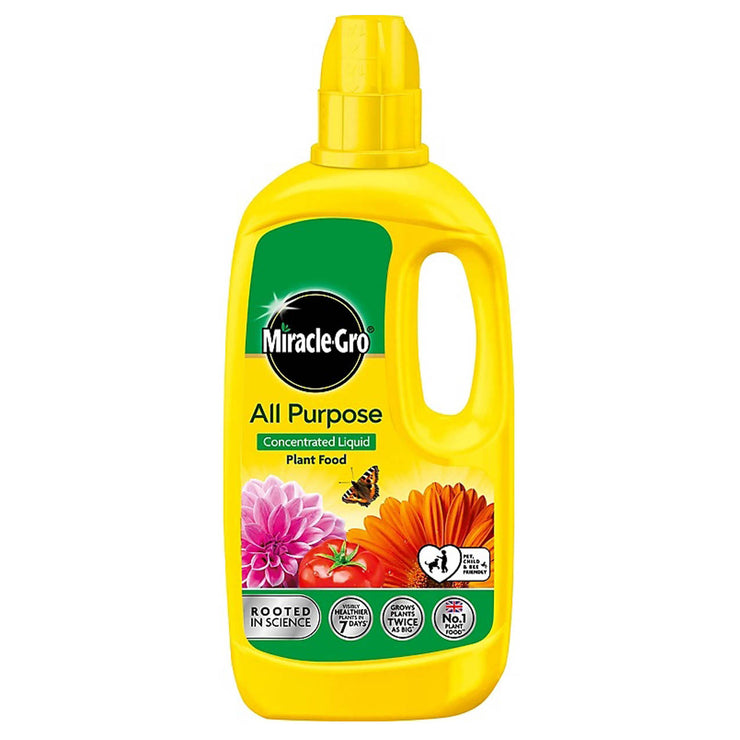Gardening enthusiasts and professionals alike often find themselves navigating through a myriad of plant food options. Among the plethora of choices, “all purpose plant food” stands out as a versatile and essential tool for nurturing a wide variety of plants. Whether you are a novice gardener or a seasoned horticulturist, understanding the benefits and applications of all purpose plant food can significantly enhance the health and vibrancy of your garden.
What is All Purpose Plant Food?
All purpose plant food, as the name suggests, is a type of fertilizer designed to cater to the nutritional needs of a wide range of plants. Unlike specialized fertilizers that are tailored for specific plant types or stages of growth, all purpose plant food contains a balanced blend of essential nutrients suitable for most plants. Typically, this type of fertilizer includes a mix of nitrogen, phosphorus, and potassium – the three primary nutrients that plants require for healthy growth. The balanced formulation makes it an ideal choice for gardeners who want a simple, yet effective solution for their plant nutrition needs.
The Benefits of Using All Purpose Plant Food
One of the key benefits of using all purpose plant food is its convenience. Gardeners do not need to purchase multiple types of fertilizers for different plants in their garden. This not only simplifies the gardening process but also reduces the cost of maintaining a garden. Additionally, all purpose plant food is typically available in various forms, including granules, liquid, and slow-release pellets, providing flexibility in application based on the gardener’s preference and the specific needs of their plants.
Another significant advantage is the promotion of overall plant health. All purpose plant food ensures that plants receive a consistent supply of essential nutrients, leading to robust root development, lush foliage, and vibrant blooms. The balanced nutrient composition helps prevent common deficiencies that can hinder plant growth and lead to poor yields. By providing a steady nutrient supply, gardeners can ensure their plants thrive throughout the growing season.
How to Use All Purpose Plant Food Effectively
To maximize the benefits of all purpose plant food, it is crucial to follow the recommended application rates and methods. Over-fertilizing can be detrimental to plants, causing nutrient burn and negatively affecting soil health. It is advisable to read the product label carefully and adhere to the manufacturer’s guidelines. Generally, all purpose plant food can be applied during the planting phase and as a regular part of the plant’s feeding schedule. For best results, incorporate the fertilizer into the soil at the root level, ensuring that the nutrients are readily accessible to the plant.
For established plants, side-dressing or top-dressing methods can be used, where the fertilizer is applied around the base of the plant. Watering the plants after application helps dissolve the nutrients and facilitates their absorption by the roots. Liquid forms of all purpose plant food can be mixed with water and applied directly to the soil or as a foliar spray, providing immediate nutrient uptake.
Choosing the Right All Purpose Plant Food
When selecting all purpose plant food, it is essential to consider the specific needs of your garden. Different formulations may have varying ratios of nitrogen, phosphorus, and potassium, tailored for specific growing conditions. For instance, a formulation with higher nitrogen content is beneficial for promoting leafy green growth, making it ideal for vegetables and ornamental plants. Conversely, a balanced or higher phosphorus content formulation supports root development and flowering, suitable for fruiting plants and blooming flowers.
Organic and synthetic options are also available. Organic all purpose plant food, derived from natural sources, is an excellent choice for eco-conscious gardeners aiming to maintain soil health and sustainability. Synthetic fertilizers, on the other hand, offer the advantage of precise nutrient formulations and immediate availability to plants. Understanding the specific requirements of your garden and the benefits of each type can help you make an informed decision.
Common Misconceptions About All Purpose Plant Food
Despite its versatility and benefits, there are some misconceptions about all purpose plant food that need to be addressed. One common myth is that more fertilizer equals better plant growth. This is not true; over-fertilization can harm plants and degrade soil quality. Another misconception is that all purpose plant food can replace the need for proper soil management and care. While it significantly contributes to plant health, maintaining good soil structure, proper watering, and pest control are equally important for a thriving garden.
Additionally, some gardeners believe that all purpose plant food is not suitable for specialized plants such as orchids or succulents. While specialized fertilizers can provide tailored nutrition, many plants, including these, can benefit from the balanced nutrients offered by all purpose plant food when used correctly.
Conclusion: The Versatile Solution for Every Gardener
All purpose plant food is an invaluable asset for gardeners seeking simplicity and effectiveness in plant nutrition. Its balanced nutrient composition, ease of use, and versatility make it an ideal choice for a wide range of plants. By understanding how to use it effectively and selecting the right formulation for your garden’s needs, you can ensure healthy, vibrant, and thriving plants. Embrace the convenience of all purpose plant food and watch your garden flourish.
